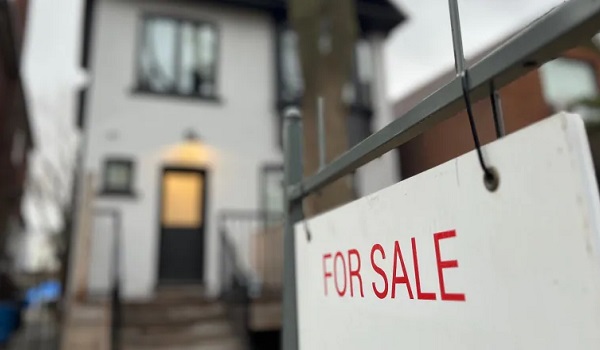Is there any appeal to first-time home buyers shunning today’s shrinking condos?
Alec Dagenais, 21, is a few years out from being ready to buy his first home, but he already knows he doesn’t want a condo.
He sees some appeal to condo living: It would be less responsibility and, as someone living alone, he doesn’t need a huge amount of space.
But monthly condo fees make the units more expensive than their sale prices suggest, he says. And living in Gatineau, a still-affordable market, a condo is “a lot of the time not meaningfully cheaper,” says Mr. Dagenais, a wealth management associate. “I don’t see the point in going for something inferior, because historically they gain value at a lower rate than single-family homes.”
There are signs that first-time buyers are souring on condo living. A recent survey of Canadian renters about their home ownership plans by real estate search portal Point2 found that – despite citing high home prices and the down payment as their top challenges to buying – 77 per cent of respondents wanted to buy a single-family home. Just 12 per cent want a condo, a figure that dropped to 8 per cent for respondents aged 18 to 24, and 9 per cent for those over 65.
Still, a condo is the only affordable option for many first-time buyers, particularly in Canada’s most expensive housing markets. More than a third of first-time buyers in British Columbia and just under one in six in Ontario bought a condo in 2019, according to Statistics Canada.
Ron Butler, a Toronto-based mortgage broker with Butler Mortgage Inc., says there’s a “high level of frustration and anger” toward the city’s condo market among the first-time buyers he works with. The reason, he says, comes down to the square footage of available stock.
Ontario condos are 35 per cent smaller on average than they were 25 years ago, while detached homes are 25 per cent larger, according to October, 2022, data from Municipal Property Assessment Corp. The average square footage of a condo peaked in the mid-1990s at roughly 1,100 square feet; in 2022, the average was about 700 square feet, which is roughly the size of a large one-bedroom apartment.
Ontario isn’t the only province to see new condos shrink. Statscan data from 2019 found that the living area of B.C. condos built in 2016 and 2017 is more than 15 per cent smaller than for those built in the 1980s and 1990s.
Rose Calvelo, a realtor with eXp Realty in Calgary, said many of the first-time buyers she works with are eager to own land. They’re also frequently worried about monthly condo fees and the risk of facing a special assessment, a charge all condo owners in a building must pay if there are unexpected repairs or a shortfall in the condo’s reserve fund.
Ms. Calvelo says small units are coming to the Calgary market, a function of a drastic increase in the cost of development. “Developers are building matchboxes and charging a lot per square footage, and the quality is not the same,” she said.
Small condos are a particular feature of major cities such as Toronto and Vancouver, which don’t have much green-field land left and have to build upward, said Mike Moffatt, founding director of the PLACE Centre at the Smart Prosperity Institute. He noted this is a growing issue in Mississauga as well.
“Very sensible” rules dictating that each bedroom in a condo unit must have one window raise the cost to developers of multibedroom units, as do higher land costs, zoning rules and high development charges, he said.
It’s why Toronto grew its stock of dwellings with three or more bedrooms by just 0.6 per cent between 2016 and 2021, according to census data. The number of bachelor units, however, grew 28 per cent in that time frame.
Mr. Butler said a near decade-long rental market boom that saw investors scoop up preconstruction condos to later rent out has also played a role in incentivizing builders to build smaller spaces. According to Statscan, 57 per cent of condos built after 2016 in Ontario were owned by investors, along with 59 per cent in Nova Scotia and 49 per cent in B.C.
Those units, now uneconomical for investors to rent out amid higher interest rates, are flooding the market. But first-time buyers aren’t impressed.
“When you do make this big decision in your life, there’s a lot of costs associated with it. You start to think, ‘What’s the future of me in this place?’” Mr. Butler said. For young renters, a year in less than 500 square feet may feel like a minor concession to live downtown. But for first-time buyers, that can look more like many years in a space they don’t love and that they aren’t sure will appreciate in value as it did in the past.
As well, he noted, many first-time buyers are couples. “Would any couple want to live in a 480-square-foot condo, or contemplate having a family some day? Is there any appeal to them whatsoever?”
Some motivated buyers are moving further out in search of space. But other buyers are simply opting out of condo ownership, Mr. Butler said. “That’s probably the reason we’re at 27-year lows in sales.”
Sean Miller, a realtor with Property.ca in Toronto, said the first-time buyers he works with are much more hesitant to buy.
“Anything was selling before – a unit facing a brick wall, or the garbage dump, or a train track, with a terrible layout, no room to put your couch, and it was selling instantaneously. And now those aren’t really selling,” he said
This article was first reported by The Globe and Mail













